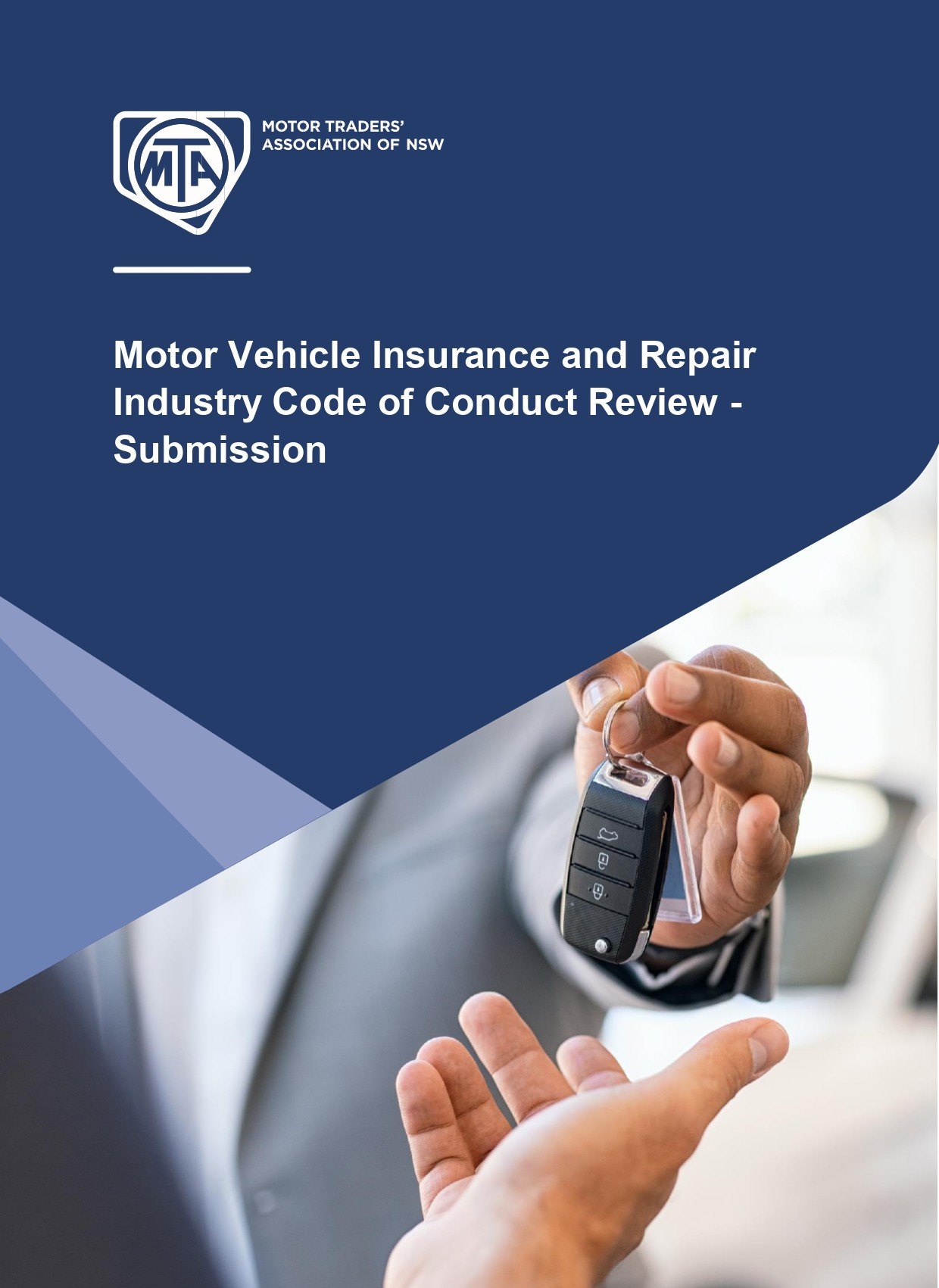MVIRI Code of Conduct Review Submission 2025
![]()

MTA NSW has now submitted detailed feedback on the draft Motor Vehicle Insurance and Repair Industry (MVIRI) Code of Conduct and its associated Governance Documents to the Federal Government. This comprehensive submission, developed through extensive consultation with members across NSW and the ACT, offers practical and constructive recommendations aimed at fostering a fairer, more sustainable, and future-ready collision repair industry.
MTA NSW fully supports the recommendations outlined in Dr. Michael Schaper's 2023 review and acknowledges the collaborative efforts of the Code Administration Committee (CAC), the Insurance Council of Australia (ICA), and the Motor Trades Association of Australia (MTAA) in shaping a revised Code that prioritises clarity, improved governance, and enhanced accountability.
Our submission highlights five key areas of focus:
- Governance and Compliance: MTA NSW advocates for clearer guidelines for sanctions, transparent publication of CAC decisions, and the establishment of an appeal process to ensure natural justice. These measures are designed to build industry trust and guarantee fair and proportionate penalties, particularly for small businesses.
- Estimate and Assessment Processes: Significant reforms are proposed to enhance fairness and efficiency. This includes reinforcing transparency in estimation, mandating the inclusion of government charges in estimates, and accelerating approvals and payments for supplementary work. The submission also calls for timely payment of parts and invoices to alleviate cash flow pressures on small businesses, codified standards for assessments and repairs, and a formal Code of Conduct for estimators and assessors.
- Methods of Repair: Emphasising consumer safety and industry professionalism, we stress the critical importance of prioritising OEM repair methods and acknowledging the validity of Paint Company methodologies. The use of genuine OEM or authorised parallel import parts is recommended for vehicles still under warranty, and only qualified, licensed, or OEM-certified repairers should undertake authorised repairs.
- Dispute Resolution Process (DRP): To improve accessibility for small businesses, MTA NSW recommends simplifying DRP procedures. The submission also suggests that adjudications should be binding, with limited allowances for appeals in cases involving safety or OEM warranty breaches. It is further recommended that adjudicators possess demonstrated experience in estimating, assessing, and repair methodology, with transparent role descriptions.
- Use of Artificial Intelligence (AI): While recognising the increasing role of AI in the industry, MTA NSW firmly states that any AI-generated estimate or assessment must undergo review and approval by a qualified human to ensure accuracy and accountability.
MTA NSW remains committed to fostering a more collaborative relationship between insurers, repairers, and consumers. We look forward to continued engagement with all stakeholders to ensure the finalised Code is practical, scalable, and adaptable to emerging technologies and regulatory shifts within the automotive sector. This comprehensive submission is part of our dedication to building a stronger, fairer, and more transparent future for the collision repair industry in Australia.
< Back